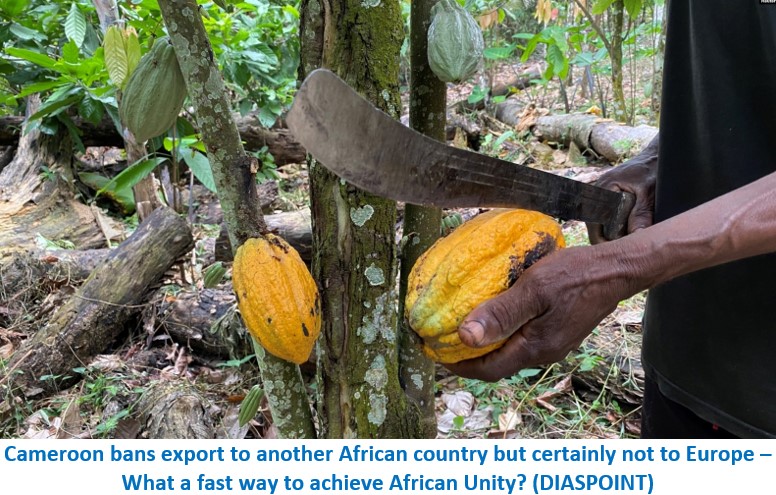Cameroon’s Farmers Decry Crop Export Ban to Nigeria
Post By Diaspoint | July 1, 2023

Cameroon is cracking down on the smuggling of cocoa, cotton, and other cash crops to Nigeria by temporarily banning the legal trade as well. Since announcing the ban two weeks ago, authorities have sent hundreds of police to the border and seized scores of trucks. But Cameroon’s struggling farmers are protesting the ban, saying it’s more profitable and safer to sell their goods to Nigeria.
Cameroon police and customs officials say they blocked scores of trucks that attempted to smuggle cash crops in the past two weeks from northern towns and villages into Nigeria.
Police say they seized wheat, corn, rice, cocoa, and cotton since launching a temporary ban on all crop exports to Nigeria on June 13.
Cameroon’s ministry of trade says the ban was needed as it loses $165 million each year from the smuggling of cash crops to its northern neighbor – 60% of the total trade.
The government ordered hundreds of police to the border and to track down at least 12 trucks that fled from authorities.
Cameroon’s farmers say the ban will be hard to enforce along the porous, 2,000-kilometer-long border.
Speaking by phone from the border town of Mara, he says many farmers are not able to store their crops for selling in Cameroon.
Ahmadou says Cameroon does not have enough facilities to protect cocoa, wheat, corn, rice and sorghum from moisture, dust, and [insect] swarms that invade and destroy crops after harvest. He says farmers prefer selling their produce to a ready Nigerian market because rice, corn, and raw cotton processing equipment is scare, old, and there are regular power cuts.
Ahmadou says selling to Nigerian merchants is also more profitable, and he cites the example that farmers can get about 20% more for a 50-kilogram bag of unprocessed rice.
Cameroon’s government complains it pays subsidies to farmers to sell their cash crops locally and at agreed prices.
The ban was announced by Cameroon’s trade minister Luc Magloire Mbarga Atangana.
He says they are aware of the challenges for the government and the farmers.
Read More from original source
